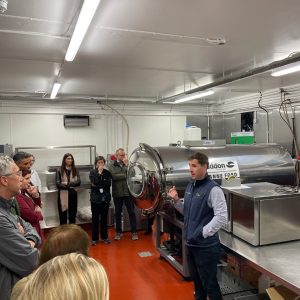At the heart of Ireland’s agri-food innovation, Teagasc, the Agriculture and Food Development Authority, is turning food waste into opportunity. As part of the ROSETTA project, Teagasc and its Food Research Centre are leading a pilot that aims to reduce fruit and vegetable waste linked to strict marketing standards by transforming surplus or cosmetically imperfect produce into appealing, sustainable food products.
From Rejected to Remarketable: Adding Value to Suboptimal Produce
Each year, large volumes of fruits and vegetables are discarded because they do not meet visual or commercial standards, despite being perfectly edible. The Teagasc pilot seeks to challenge this norm by developing a range of branded products including juices, jams, sauces, and snacks made from surplus or “ugly” produce.
“This solution increases the marketability and shelf life of suboptimal produce, offering a sustainable and profitable solution to food waste,” explains Maeve Henchion from Teagasc. The approach involves close collaboration with farmers and processors to ensure that rejected produce is repurposed efficiently and creatively.
Empowering Consumers through Awareness and Taste
Beyond product development, the pilot also includes an educational component aimed at encouraging sustainable food choices. Through community engagement, events, and consumer testing, the initiative will promote healthy eating, local food systems, and practical solutions for reducing waste at home.
The intervention is scheduled to launch in late August. Upcoming activities include recipe finalisation, consumer surveys, and public testing events. The pilot reflects Teagasc’s commitment to innovation, sustainability, and supporting local agri-food value chains, aligning closely with ROSETTA’s mission to rethink how marketing standards impact food use and access.



The ROSETTA team visiting the Teagasc Food Research Centre



